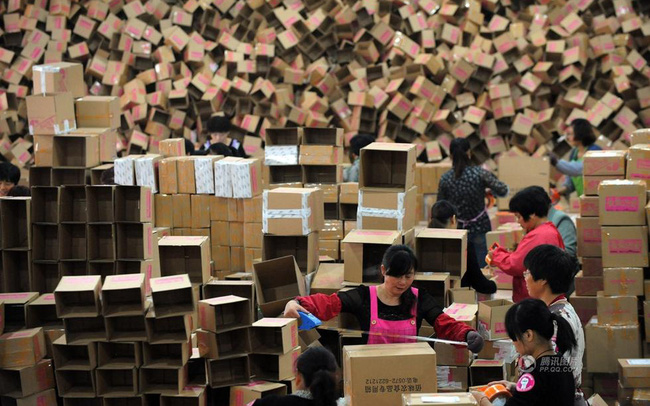Economic corner: The “trick” of “super sale” days like 11/11 that shopaholics should know
- Tram Ho
Singles’ Day, which is celebrated on November 11 every year – considered a Chinese e-commerce festival, has spread and boosted e-commerce consumption in Malaysia, Singapore and now the whole world. Vietnam.
Alibaba and founder Jack Ma turned Singles’ Day into a global online shopping festival, first in 2009 and raking in more than $14.3 billion.
The answer is no. Microeconomic theory suggests that November 11 sales campaigns, as well as coupons and other similar forms, are a form of momentary price discrimination that can allow businesses to business makes more profit.

This campaign is based on the idea that different individuals are willing to pay different amounts for the same product . Initially, stores set very high product prices and sold to customers who had high demand for the product and did not want to wait, capturing a consumer surplus from this group of customers.
After this high-end customer group has bought enough products for themselves, stores will reduce prices to attract the rest of the mass customer group. The policy of price discrimination will help increase the profit of the producer.
If these “super sale” days benefit manufacturers, why don’t they organize these shopping festivals more often?
In fact, today, brands from large to small have many different promotional discounts, not only focusing on 11/11, or Black Friday anymore. However, if discount events occur over time, the marginal benefit to the producer from them will also decrease.
Because consumers’ budgets are limited, even if manufacturers cut prices more times a year, they can’t increase consumption too much. Moreover, consumers choose to buy goods on sale day with the mentality that: “If you don’t buy it right away, it may not be on sale later”. Therefore, when consumers are too familiar with price reductions, this mentality will also disappear.
In addition, today’s super sale days are also transformed into the day of discharging outdated products, defective or difficult to sell products, and retail sizes. This has reduced its influence on consumer demand.
These super sale days also cause some negative effects on the part of consumers. It causes overconsumption, which sometimes outweighs the benefits of buying cheap stuff. Of course, smart consumers will be the ones to weigh more when shopping. But perhaps, not everyone is awake to cheap goods and attractive offers of brands.
Source : Genk
